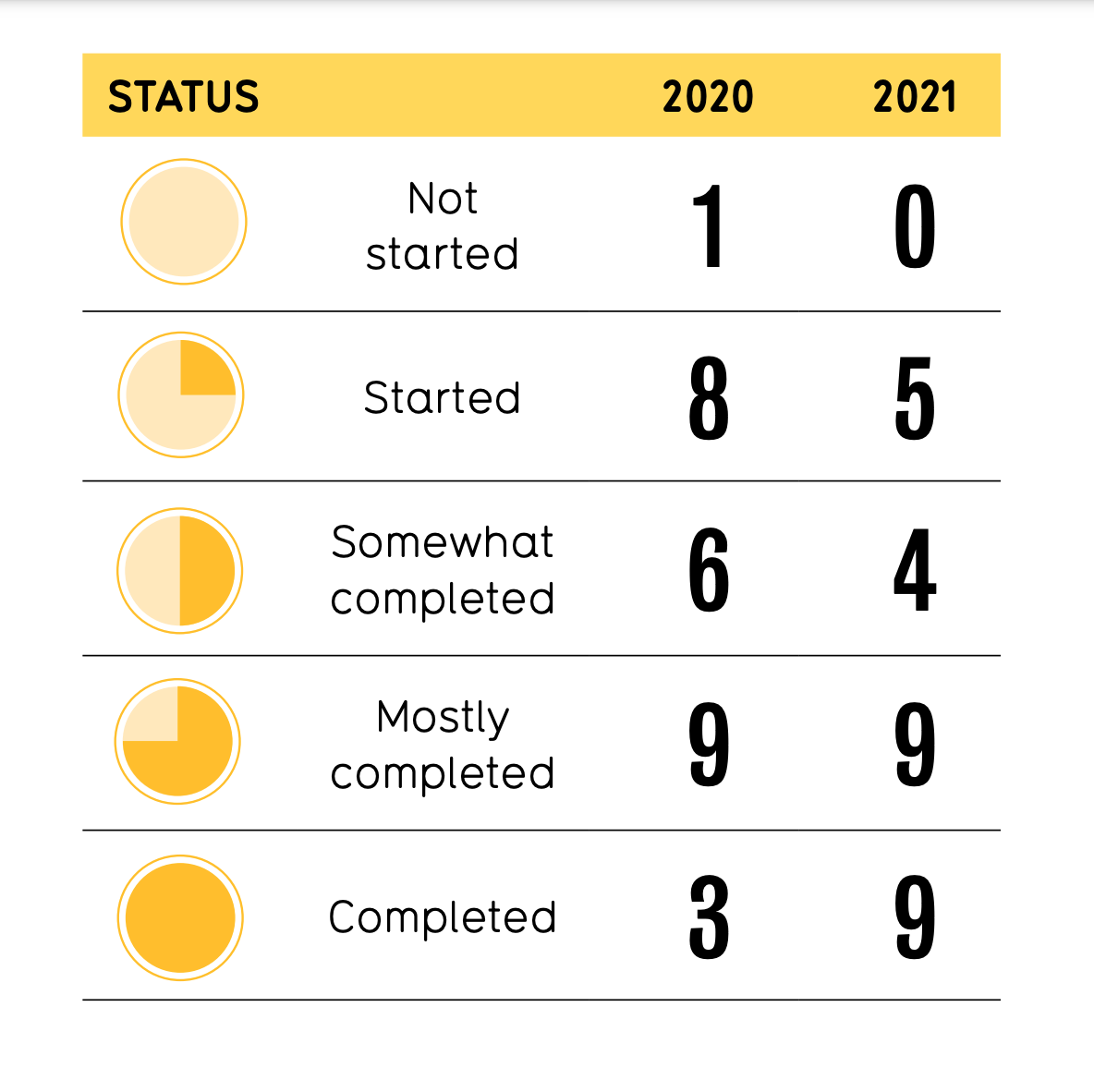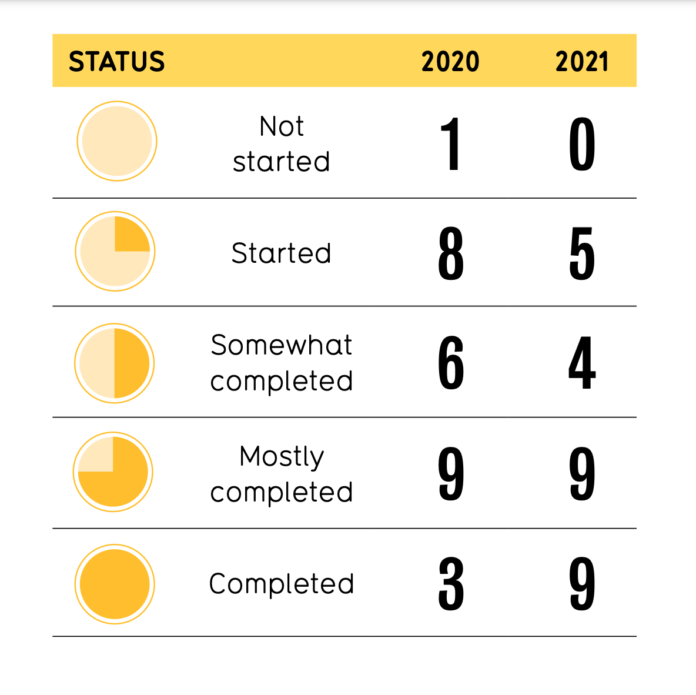In March 2017, the University of Waterloo established its Policy 53 – Environmental Sustainability, which outlines the University’s responsibility in mitigating climate change and addressing the climate crisis.
“As an institute of higher learning and research,” Policy 53 begins, UW “recognizes its unique responsibility to develop innovative and realistic solutions to pressing environmental issues.”
Environmental Sustainability Strategy
In November 2017, UW released its Environmental Sustainability Strategy for 2017 – 2025, describing the University’s sustainability aims and efforts.
The Sustainability Strategy has three interdependent goals, one for each of UW’s three major areas of sustainability initiatives:
- Academics: Be a leader in sustainability education and research
- Operations: Operate the campus sustainably
- Engagement: Embed sustainability practices into campus culture
The strategy also outlines 27 specific objectives, which are specific actions the University plans to undertake, and five foundational actions that guide the University’s overall approach to sustainability.
Development of the Sustainability Strategy began in 2015, when the University hired a full-time sustainability coordinator, Mathew Thijssen, established the President’s Advisory Committee on Environmental Sustainability (PACES) and created working groups for each of the three major areas.
According to Thijssen, who now leads UW’s Sustainability Office as the University’s Director of Sustainability, these efforts were driven by “both student and employee interest in having a greater institutional response to sustainability.”
“We asked students and employees and other stakeholders across the campus, ‘what are some of the priority areas that you would like to see Waterloo take action on?’” Thijssen said. “[We found that] things like climate change, waste management, sustainable transportation and integrating [sustainability] into teaching and research [were emphasized], and that was reflected in the breadth and the ambition of the goals that we set in those areas,” he explained.
Climate and Energy Action Plan
In 2017, the University of Waterloo developed a Climate and Energy Action Plan to achieve carbon neutrality by 2050. The plan, Shift: Neutral, lays out four key pathways for carbon reduction:
- Improving efficiency and reducing energy consumption
- Integrating low-carbon energy and diversifying supply
- Minimizing indirect emissions
- Offsetting remaining emissions
Shift: Neutral includes specific actions and short and medium-term targets to build momentum, as well as long-term planning for carbon neutrality and energy efficiency.
Divestment
In June 2021, UW became the eighth Canadian university to divest from fossil fuels, announcing a commitment to reduce the carbon footprint of its pension and endowment investment portfolios by 50 per cent by the year 2030 and achieve full carbon neutrality by 2040.
SWR Pledge
Additionally, UW is a Bronze Pledging Partner with Sustainable Waterloo Region (SWR), based on the University’s commitments in the Climate and Energy Action Plan. In June 2021, UW received SWR’s Sustainability Breakthrough Award, which recognizes an organization that has overcome substantial barriers in their path to sustainability.
Fair Trade Certification
Furthermore, UW is a Fair Trade Campus, meaning all University and student-run food outlets on campus offer sustainable options. However, franchises are exempt from this certification process, and many franchises on campus offer limited or no sustainable products.
Reporting and Tracking on Progress
UW publishes annual Environmental Sustainability Reports to track their progress in meeting the goals established in the Sustainability Strategy.

As of fall 2021, the University was behind on four of the 27 objectives, and tentatively on track or complete on three others, with some delays or complications caused by the COVID-19 pandemic.
UW also measures their sustainability efforts through the Sustainability Tracking, Assessment, and Rating System (STARS), which tracks and compares climate and sustainability efforts by institutions of higher education. UW is currently rated silver and is aiming to achieve a gold rating by 2025 when the current Environmental Sustainability Strategy expires. As of January 2022, there are 10 Platinum, 133 Gold, 161 Silver, 43 Bronze and 17 Reporter institutions.
Student Engagement
As outlined in the Environmental Sustainability Strategy, UW aspires to be a leader in sustainability research and education. While sustainability content is available to students in all faculties, a focus on sustainability is not yet integrated into every academic program. The University also has numerous researchers and research groups whose work is focused on climate and sustainability challenges.
Student groups have played a vital role in advancing environmental initiatives on campus.
“Student pressure from groups like Fossil Free UW and independent students really drove the decarbonisation of our portfolio. Change might be slow and you might not get the progress you want right off the bat. But, if you’re perseverant and you find people who want to spread your message as well, student advocacy can have a huge impact on how the university operates,” said Jenna Phillips, the WUSA Sustainability Commissioner.































